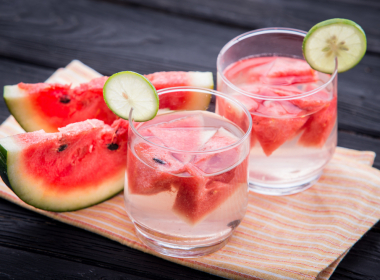Sea buckthorn berries have been overshadowed by their more famous blue cousins for years, despite possessing an impressive nutritional profile that specifically targets brain health. These small orange-yellow fruits grow on thorny shrubs native to Europe and Asia, particularly thriving in harsh coastal and mountainous environments where few other plants can survive.
The resilience of the plant itself hints at the powerful compounds contained within its berries. While blueberries have long dominated discussions about brain-boosting foods, emerging research suggests that sea buckthorn deserves equal—if not greater—attention for its cognitive benefits.
Archaeological evidence indicates that sea buckthorn has been utilized for thousands of years, with documented medicinal use dating back to ancient Greek texts. The plant earned its scientific name, Hippophae rhamnoides, which roughly translates to “shining horse,” after ancient Greeks noticed that horses fed these berries developed remarkably shiny coats. Despite this long history, sea buckthorn remains relatively unknown in modern Western diets.
Superior antioxidant profile compared to blueberries
When examining the neuroprotective capabilities of fruits, antioxidant content stands as a crucial metric. While blueberries contain impressive levels of anthocyanins—the compounds responsible for their deep blue color and many health benefits—sea buckthorn offers a more diverse antioxidant profile that works synergistically to protect brain cells.
Sea buckthorn berries contain exceptionally high levels of vitamins C and E, with vitamin C content up to 12 times higher than that found in oranges per serving. This powerful combination provides comprehensive protection against oxidative stress, which is a primary factor in age-related cognitive decline and neurodegenerative diseases.
The berries also contain rare omega-7 fatty acids, primarily palmitoleic acid, which is seldom found in plant sources. This fatty acid has demonstrated the ability to reduce inflammation in neural tissues, potentially slowing cognitive aging processes. Blueberries, while valuable for brain health, do not contain this rare fatty acid.
The carotenoid content in sea buckthorn further distinguishes it from blueberries. These berries contain over 60 different carotenoids, including beta-carotene, lycopene, and zeaxanthin, which not only give the fruit its vibrant color but also protect the brain by neutralizing specific types of free radicals that can damage neural tissues. By comparison, blueberries contain minimal carotenoids.
Unique brain-specific nutrients absent in blueberries
The specialized neural benefits of sea buckthorn extend beyond its antioxidant content. These berries contain several compounds that specifically target brain health in ways that blueberries cannot match.
One significant advantage is sea buckthorn’s exceptional quercetin content. This flavonoid has demonstrated the ability to cross the blood-brain barrier—a highly selective membrane that protects the brain from potentially harmful substances in the bloodstream. Once in the brain, quercetin helps regulate neurotransmitter activity and protects neurons from toxin-induced damage.
Sea buckthorn also contains significant amounts of omega-3 and omega-6 fatty acids in an optimal balance. These essential fatty acids serve as building blocks for brain cell membranes and facilitate communication between neurons. While blueberries offer various brain benefits, they contain negligible amounts of these crucial fatty acids.
Perhaps most impressively, sea buckthorn berries contain unique phytosterols that research suggests may help prevent the formation of beta-amyloid plaques—protein aggregates strongly associated with Alzheimer’s disease development. This specific neuroprotective mechanism represents a significant advantage over blueberries in the context of long-term brain health.
Superior neuroinflammation reduction properties
Chronic inflammation in the brain contributes significantly to cognitive decline and neurodegenerative disorders. Both blueberries and sea buckthorn offer anti-inflammatory benefits, but sea buckthorn contains compounds that specifically target neuroinflammation through multiple pathways.
The berries contain unique plant compounds called lignans that have demonstrated powerful anti-neuroinflammatory effects in research. These lignans help inhibit the activation of microglia—immune cells in the brain that, when chronically activated, can damage healthy neurons through persistent inflammation.
Sea buckthorn’s fatty acid profile further enhances its anti-neuroinflammatory capabilities. The presence of both omega-3 and omega-7 fatty acids creates a complementary effect that regulates inflammatory signaling more effectively than the compounds found in blueberries.
Additionally, sea buckthorn contains significant amounts of serotonin precursors, which not only support mood regulation but also help reduce neuroinflammation through serotonergic anti-inflammatory pathways. This multi-faceted approach to combating brain inflammation represents a significant advantage over blueberries.
Memory enhancement capabilities
When directly comparing the effects of sea buckthorn and blueberries on memory function, research consistently shows superior benefits from sea buckthorn consumption. Several mechanisms appear responsible for these enhanced memory effects.
First, sea buckthorn contains substantial amounts of magnesium and zinc—minerals essential for synaptic plasticity, the process that allows neurons to form new connections associated with learning and memory. While blueberries contain these minerals, their concentrations are significantly lower than those found in sea buckthorn.
The berries also contain compounds that support acetylcholine production and regulation. Acetylcholine serves as a critical neurotransmitter for memory formation and recall. By supporting healthy acetylcholine levels, sea buckthorn helps maintain cognitive function, particularly as the brain ages.
Perhaps most significantly, sea buckthorn appears to stimulate neurogenesis—the creation of new neurons—in the hippocampus, a brain region crucial for learning and memory. While blueberries show some support for neurogenesis, research indicates that sea buckthorn’s effects are more pronounced, likely due to its unique combination of flavonoids, carotenoids, and fatty acids.
Protection against age-related cognitive decline
Both fruits offer protective benefits against age-related cognitive decline, but sea buckthorn’s comprehensive nutrient profile provides broader protection through multiple mechanisms.
Sea buckthorn contains significant levels of folate, a B vitamin crucial for brain health that becomes increasingly important as we age. Folate deficiency correlates strongly with cognitive decline and dementia risk, making sea buckthorn’s high folate content particularly valuable for aging brains.
The berries also provide superior protection against glycation—a process where sugars abnormally bind to proteins, creating compounds that damage brain cells and accelerate cognitive aging. Sea buckthorn contains compounds that inhibit glycation more effectively than those found in blueberries.
Additionally, sea buckthorn supports healthy cerebral blood flow through its unique combination of flavonoids and omega fatty acids. This enhanced circulation ensures brain cells receive optimal oxygen and nutrients while efficiently removing metabolic waste products, providing a level of neuroprotection that exceeds that of blueberries.
Practical incorporation into daily diet
Despite its superior brain health benefits, sea buckthorn remains underutilized largely due to its strong tart flavor and limited availability compared to blueberries. However, several approaches make incorporating this beneficial fruit into daily diets more accessible.
Sea buckthorn juice provides a concentrated form of the berries’ nutrients and can be diluted with water or mixed with sweeter juices to balance its tartness. Just one to two ounces daily delivers significant brain health benefits.
The berries are also available as flash-frozen products, preserving their nutritional value while making them accessible year-round. These frozen berries can be added to smoothies, where their strong flavor is complemented by sweeter fruits.
Sea buckthorn supplements in capsule form offer another convenient option, particularly for those who find the taste challenging. Look for whole-fruit extracts rather than isolated compounds to benefit from the synergistic effects of the berries’ complete nutritional profile.
For those interested in culinary exploration, sea buckthorn can be incorporated into jams, sauces, and dressings, where its distinctive tangy flavor adds complexity to dishes while delivering cognitive benefits.
The sustainability advantage
Beyond its neural benefits, sea buckthorn offers environmental advantages that make it an increasingly attractive option as climate concerns grow. The plant demonstrates remarkable resilience, thriving in challenging conditions with minimal water requirements.
Sea buckthorn roots form symbiotic relationships with nitrogen-fixing bacteria, allowing the plant to grow in poor soils while actually improving soil health. This makes it valuable for sustainable agriculture and land reclamation projects.
The plant’s extensive root system effectively prevents soil erosion, making it an excellent choice for protecting vulnerable landscapes. Additionally, sea buckthorn requires few if any pesticides due to its natural pest resistance, resulting in cleaner berries with fewer chemical residues.
As climate change continues to impact agricultural systems, sea buckthorn’s hardiness and environmental benefits position it as both a brain-healthy food choice and a sustainable crop for future generations.
Future research directions
While current evidence strongly supports sea buckthorn’s superior brain health benefits compared to blueberries, several exciting research areas promise to further illuminate its neuroprotective potential.
Scientists are investigating how sea buckthorn compounds might specifically target tau protein abnormalities—another key factor in Alzheimer’s disease development. Preliminary research suggests that certain flavonoids in the berries may help prevent the formation of neurofibrillary tangles associated with cognitive decline.
Researchers are also examining sea buckthorn’s potential benefits for traumatic brain injury recovery, with early studies indicating that its anti-inflammatory and antioxidant properties may help reduce secondary damage following head injuries.
As interest in this remarkable fruit grows, we can expect expanded cultivation, improved varieties with enhanced palatability, and more convenient products that make it easier to incorporate sea buckthorn’s brain-boosting benefits into daily life.

















